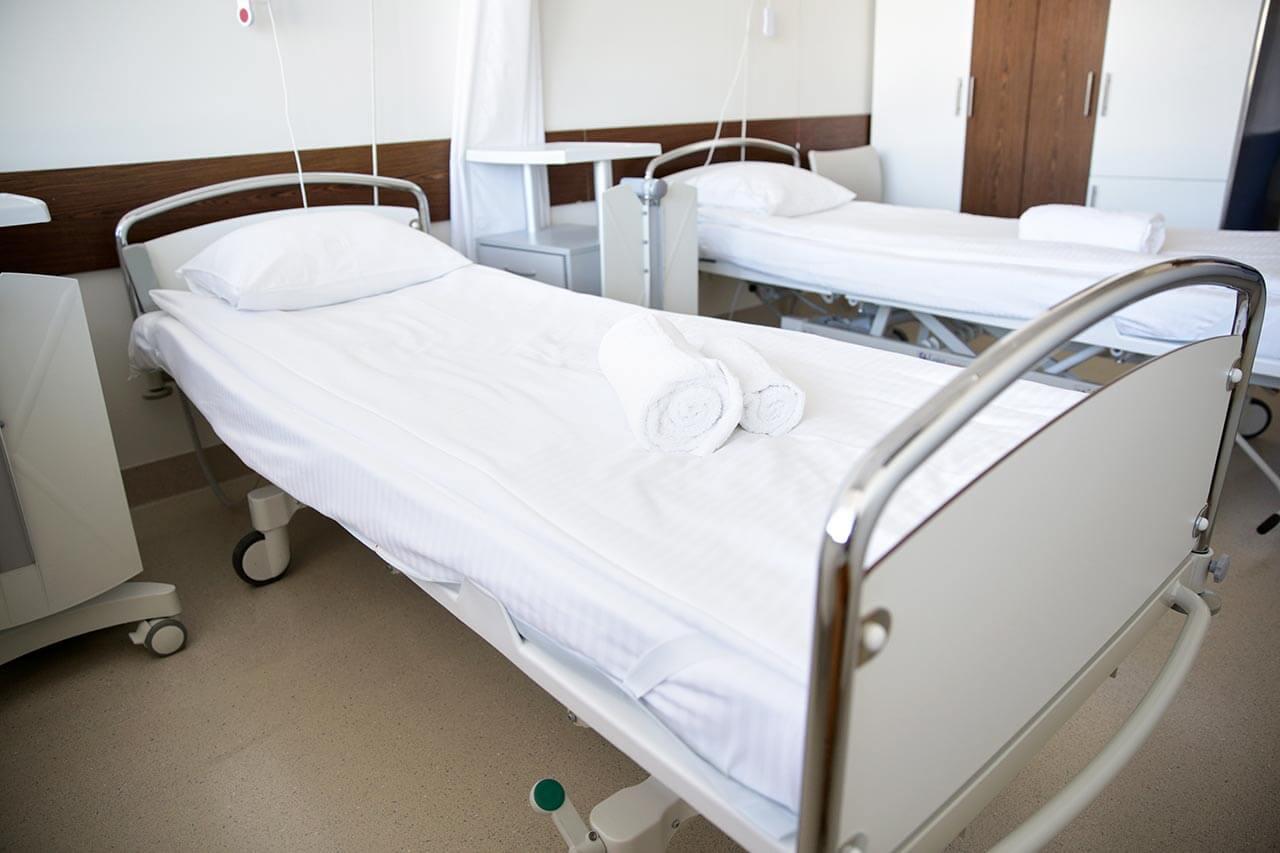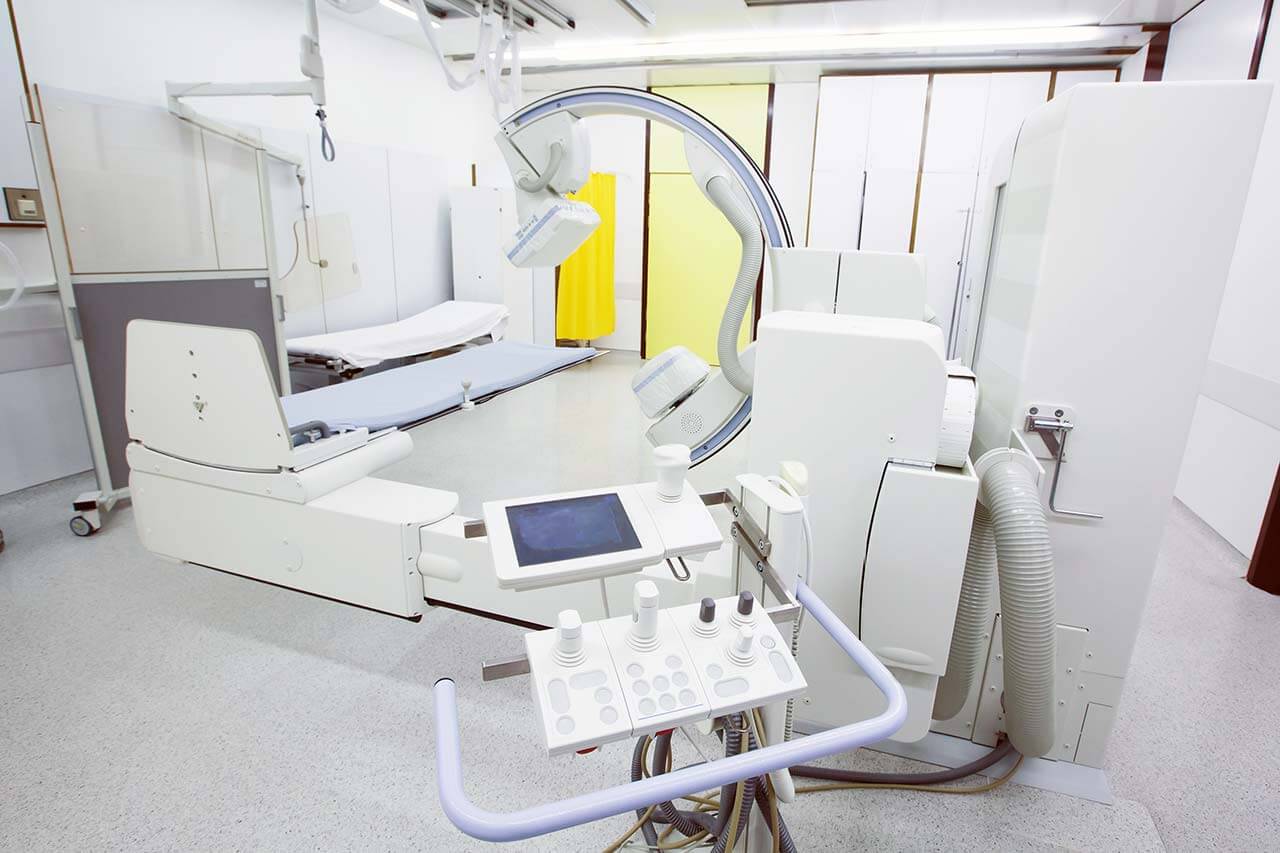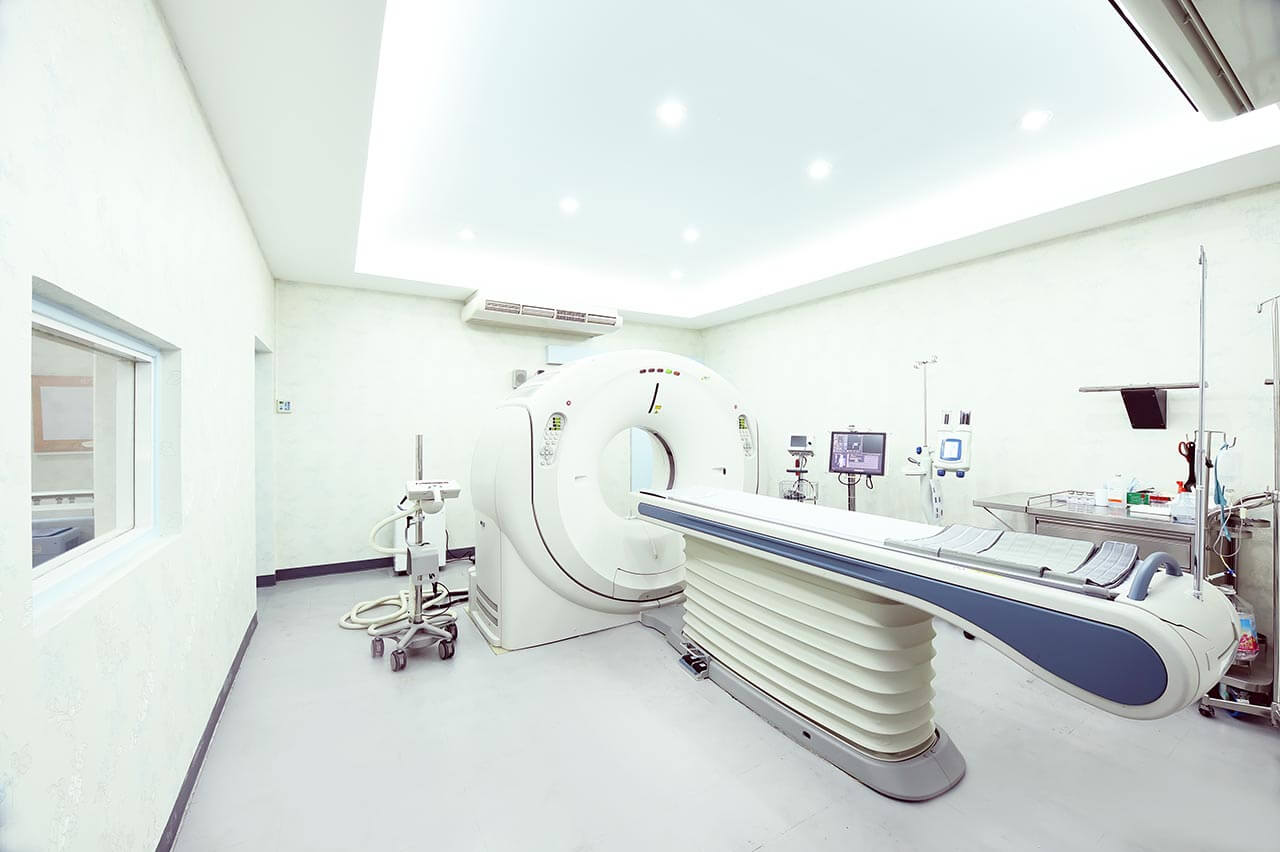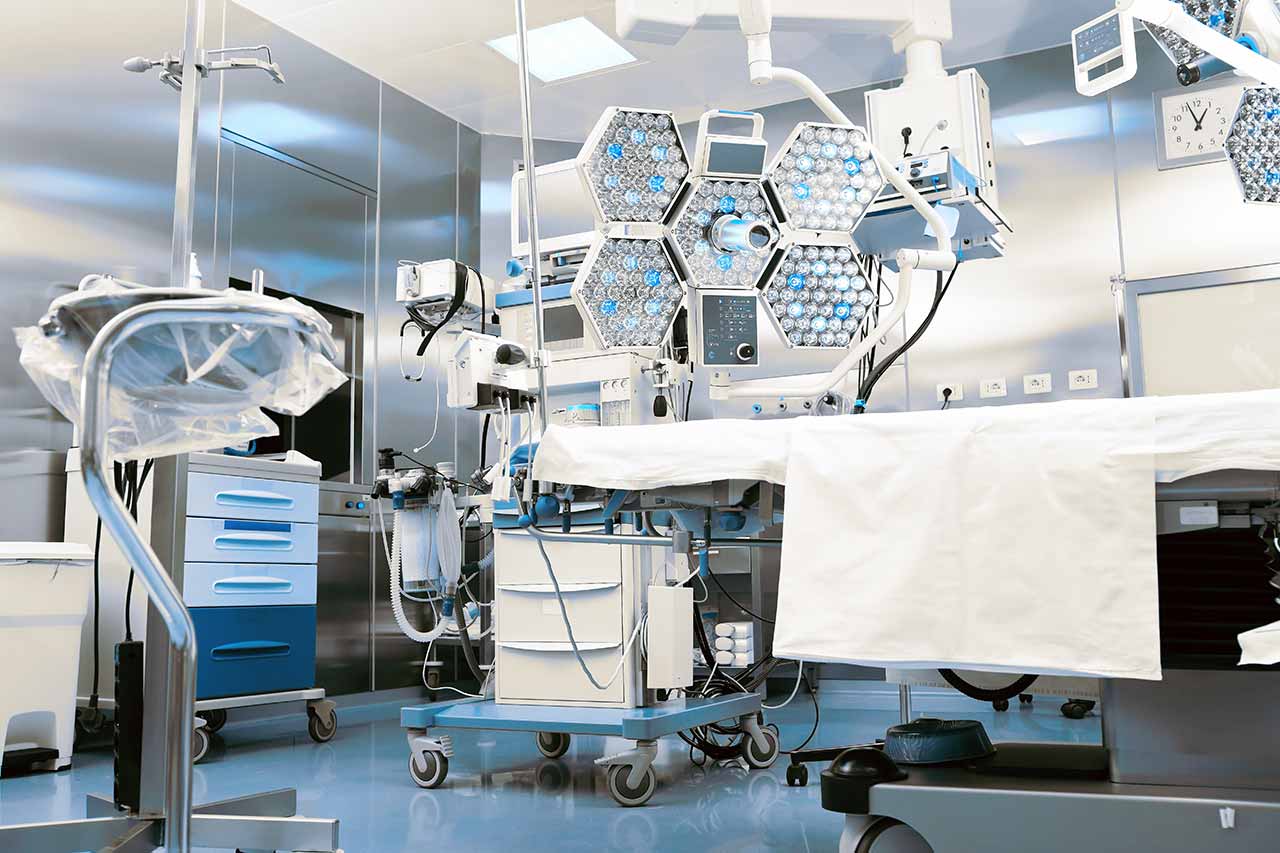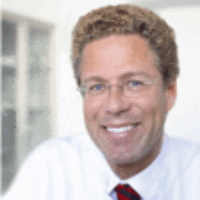
The program includes:
- Initial presentation in the clinic
- clinical history taking
- review of medical records
- physical examination
- laboratory tests:
- complete blood count
- biochemical analysis of blood
- TSH-basal, fT3, fT4
- tumor markers
- inflammation indicators (CRP, ESR)
- indicators blood coagulation
- CT/MRI of the head, neck
- general otolaryngological examination
- laryngoscopy with biopsy
- preoperative care
- extensive resection of the tumor and tracheostoma placement
- histologically and immunohistochemically
examination of the removed tissues - symptomatic treatment
- control examinations
- the cost of essential medicines and materials
- nursing services
- full hospital accommodation
- explanation of future recommendations
Required documents
- Medical records
- MRI/CT scan (not older than 3 months)
- Biopsy results (if available)
Service
You may also book:
 BookingHealth Price from:
BookingHealth Price from:
About the department
The Department of Adult and Pediatric Otolaryngology at the University Hospital Essen offers the full range of conservative and surgical methods for the treatment of ear, nose and throat diseases. Of particular interest to the department's specialist are middle ear and skull base surgery (using intraoperative navigation systems), treatment of head and neck malignant tumors, including the functional and organ-sparing laser surgery, plastic, aesthetic and reconstructive surgery, orbital surgery and cochlear implantation. The department is part of the West German Cancer Center Essen, which provides optimal options for the interdisciplinary treatment of oncological diseases. The department diagnoses and treats more than 3,800 inpatients and 13,500 outpatients annually. The department is headed by Prof. Dr. med. Stephan Lang.
In addition, the department has at its disposal the very latest methods of minimally invasive paranasal sinus surgery, salivary gland surgery, surgical treatment of midfacial injuries, as well as the diagnostics and treatment of coordination and balance disorders (for example, Meniere's disease).
One of the department’s key clinical focuses is the treatment of benign and malignant neoplasms in the head and neck. All conservative and surgical treatment options are available here, particularly, pharyngeal and laryngeal laser surgery, functional and organ-sparing surgery, plastic reconstructive surgery with free and tube flaps, radiation therapy, chemotherapy, etc. The department's doctors maintain close cooperation with private practitioners, other specialists from the related fields of the hospital, as well as with many foreign medical institutions, for example, with the University of Pittsburgh Cancer Institute. The high quality and effectiveness of head and neck cancer treatment are confirmed by the prestigious certification of the German Cancer Society.
Another important focus is cochlear implantation in adults and children. A preliminary diagnostics of the patient includes audiometry, auditory evoked potentials of the brain stem, electrocochleography, imaging examinations (MRI, CT), neurological and genetic examinations in children, etc. In addition, the condition of previously used hearing aids is checked, if necessary, new devices are also checked and adapted to the patient’s needs. Only after this, the doctor holds a consultation, during which he tells about the advantages of cochlear implantation in this particular case and the predicted operation results. Three weeks after the operation, the patient is prescribed rehabilitation, which is held in a specialized center. Four weeks after the operation, the initial adaptation of the implant takes place (check-up of its functionality and individual adaptation of single electrodes). Thus, it is possible to ensure the optimal adaptation is possible based on objective and subjective data even in young children or patients with multiple hearing disorders. During the next two weeks or even months, the doctors make a series of subsequent adjustments, which increase the "volume" and optimize various system parameters. The department is proud of its outstanding results in the field of cochlear implantation, as well as rehabilitation (including in bilateral cochlear implantation).
It should be noted that the department widely uses transoral robotic surgery. It offers the cutting-edge surgical systems such as da Vinci and Flex Robotic System. Such technical innovations allow the doctors to perform the most accurate surgical interventions with minimal damage to healthy tissues. However, the main role is still assigned to the surgeon, who controls the surgical system using a special control panel. The department is one of the leading international medical facilities in the field of robot-assisted head and neck surgery at the international level.
The service range of the department includes:
- Conservative and surgical treatment of head and neck tumors
- Paranasal sinus and skull base surgery
- Cochlear implantation in adults and children (including the occupational rehabilitation and individual adaptation of the implant)
- Orbital surgery
- Orbital decompression surgery
- Treatment of orbital tumors
- Endoscopic orbital surgery
- Treatment of eyelid and periorbital tissue tumors
- Plastic reconstructive orbital surgery
- Plastic and reconstructive surgery of the eye appendages
- Treatment of acute and chronic orbital inflammatory diseases
- Correction of orbital malformations
- Functional surgery of the internal and external nose (for example, septorhinoplasty)
- Middle ear surgery in adults and children (for example, tympanoplasty, stapes surgery)
- Treatment of hereditary hemorrhagic telangiectasia (within the specialized interdisciplinary center)
- Treatment of salivary gland diseases
- Salivary duct flushing
- Drug therapy
- Stenosis dilation
- Fragmentation (lithotripsy) and extraction of the salivary stones
- Multimodal therapy (in particularly difficult cases)
- Transoral robotic surgery (da Vinci Surgical System, Flex Robotic System)
- Correction of vascular malformations in the head and neck (hemangiomas, lymphangiomas, arteriovenous malformations, mixed types)
- Resection
- Embolization
- Sclerotherapy
- Beta blocker drug therapy
- Phoniatrics and pedaudiology (newborn hearing screening, detection and treatment of speech, voice, swallowing disorders)
- Treatment of respiratory disorders during the sleep (snoring, obstructive sleep apnea)
- Respiratory therapy (spontaneous breathing with continuous positive airway pressure)
- Alternative treatment methods
- Surgical treatment
- Outpatient surgery
- Adenoid removal (adenoidectomy) and ear interventions
- Removal of palatine tonsils
- Nasal concha reduction
- Implantation of port systems
- Tissue sampling (biopsy)
- Other medical services
Curriculum vitae
Academic and Professional Career
- Since 2006 Head of the Department of Adult and Pediatric Otolaryngology at the University Hospital Essen.
- 2004 Invitation to the position of C3 Professor in Otolaryngology, Faculty of Medicine, University of Lübeck.
- 2004 Health Economist, European Business School.
- 2001 Habilitation, Ludwig Maximilian University of Munich.
- 1998 Professional certification in Otolaryngology.
- 1994 Doctoral thesis defense, Ludwig Maximilian University of Munich.
- 1992 3rd State Examination.
- Study of Human Medicine at the Ludwig Maximilian University of Munich.
Positions in Scientific Societies and Organizations
- 2016 Elected as the President of the Association of West German Otolaryngologists, 2017 Conference President in Essen.
- 2016 Elected in the Presidium of the German Society of Otorhinolaryngology, Head and Neck Surgery.
Awards and Honorary Memberships
- Since 2011 Member of the National Academy of Sciences Leopoldina.
- 2005 Anton von Tröltsch Prize of the German Society of Otolaryngology.
Research Focuses
- Tumour immunology.
- Oncology.
- Robotic surgery.
Photo of the doctor: (c) Universitätsklinikum Essen
About hospital
According to the authoritative Focus magazine the University Hospital Essen ranks among the top German hospitals!
With 27 specialized departments and 24 institutes, the hospital in Germany is a maximum care medical facility. The hospital has 1,300 beds for inpatient treatment. A highly qualified medical team of more than 6,000 employees takes care of the health of patients. All the specialists give preference to an interdisciplinary medical care, which guarantees a comprehensive treatment taking into account the smallest aspects of a particular pathology. The hospital annually diagnoses and treats more than 50,000 inpatients and about 195,000 outpatients, which testifies to the prestige of the medical institution and the highest quality of treatment in Germany.
The hospital presents all the modern medical fields. Nevertheless, special attention should be given to the following major fields of specialization as oncology, transplantology and cardiology, as well as research activities in the field of immunology, infectology and translational examinations of pathologies of the nervous system and behavioral disorders.
Established on the basis of the standard American model of Comprehensive Cancer Centers, the West German Cancer Center (WTZ) in Essen was recognized as the best medical facility of this kind in Germany in 2009. Nowadays, the center holds leading positions both on the national and international medical markets. The basis of its successful clinical practice is the use of very latest treatment methods and an interdisciplinary approach to each clinical case. The West German Organ Transplant Centre (WZO) is also recognized as one of the best in the country and one of the few in Germany, which specializes in the transplantation of all vital organs, such as kidney, liver, pancreas, heart and lungs. Special attention is paid to kidney and liver transplantation.
The hospital in Germany is proud of its high-tech medical equipment, experienced and competent staff, productive research activities, which allow to guarantee the accurate diagnostics and effective treatment, including rare and very complex clinical cases for every patient. Consequently, the hospital is considered a perfect embodiment of high-quality treatment in Germany.
Photo: (c) depositphotos
Accommodation in hospital
Patients rooms
The patients of the University Hospital Essen live in comfortable rooms designed in bright colors. The standard room furnishing includes an automatically adjustable bed, a bedside table, a personal wardrobe, a personal call button with a built-in light panel, a telephone, a TV and a radio. The Internet access is available at an additional cost.
Meals and Menus
The patients of the hospital are offered a daily choice of three menus. The patients are also offered alternative types of menus, if their religion requires the exclusion of certain foods. If you follow a certain diet or suffer from food intolerance, you will be provided with a menu of your choice by discussing it with your attending physician in advance. The hospital also houses a bistro and a cafe, where one can have a tasty snack, enjoy hot and cold drinks.
Further details
Standard rooms include:
Accompanying person
There are a few types of hotels for the accompanying persons, who want to stay near the hospital. The hotel of the Essen University Hospital offers apartments on the first floor of the nursing high-rise building. The DRK nursing also offers single and double rooms.
The hotel in Grugapark is available for the parents, whose children stay in the hospital. The parents of children with cancer can also stay here. Moreover, The Department of Pediatrics offers its rooms for parents.
